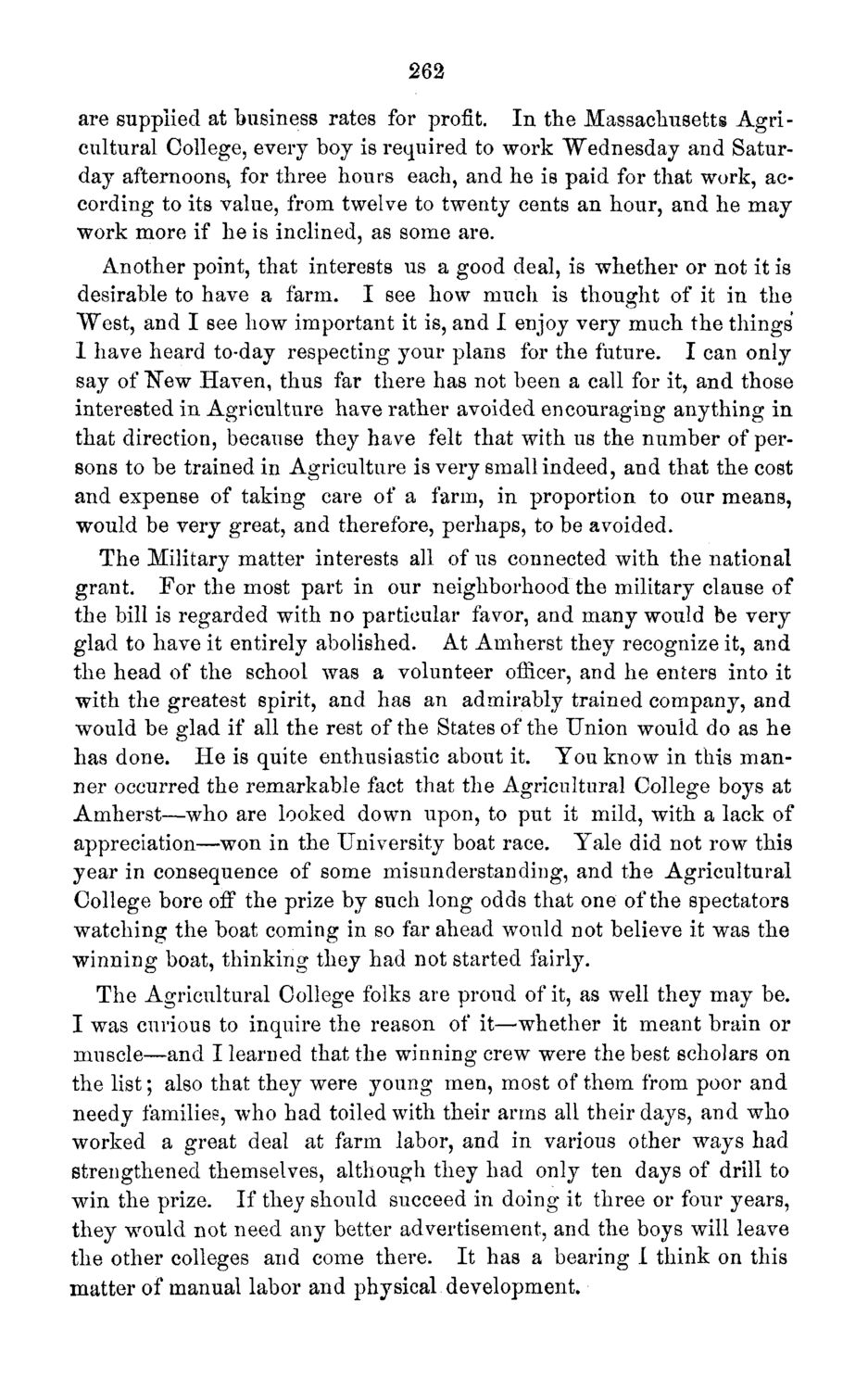| |
| |
Caption: Board of Trustees Minutes - 1871
This is a reduced-resolution page image for fast online browsing.

EXTRACTED TEXT FROM PAGE:
262 are supplied at business rates for profit. In the Massachusetts Agricultural College, every boy is required to work Wednesday and Saturday afternoons> for three hours each, and he is paid for that work, according to its value, from twelve to twenty cents an hour, and he may work more if he is inclined, as some are. Another point, that interests us a good deal, is whether or not it is desirable to have a farm. I see how much is thought of it in the West, and I see how important it is, and I enjoy very much the things 1 have heard to-day respecting your plans for the future. I can only say of "New Haven, thus far there has not been a call for it, and those interested in Agriculture have rather avoided encouraging anything in that direction, because they have felt that with us the number of persons to be trained in Agriculture is very small indeed, and that the cost and expense of taking care of a farm, in proportion to our means, would be very great, and therefore, perhaps, to be avoided. The Military matter interests all of us connected with the national grant. For the most part in our neighborhood the military clause of the bill is regarded with no particular favor, and many would be very glad to have it entirely abolished. At Amherst they recognize it, and the head of the school was a volunteer officer, and he enters into it with the greatest spirit, and has an admirably trained company, and would be glad if all the rest of the States of the Union would do as he has done. He is quite enthusiastic about it. You know in this manner occurred the remarkable fact that the Agricultural College boys at Amherst—who are looked down upon, to put it mild, with a lack of appreciation—won in the University boat race. Yale did not row this year in consequence of some misunderstanding, and the Agricultural College bore off the prize by such long odds that one of the spectators watching the boat coming in so far ahead would not believe it was the winning boat, thinking they had not started fairly. The Agricultural College folks are proud of it, as well they may be. I was curious to inquire the reason of it—whether it meant brain or muscle—and I learned that the winning crew were the best scholars on the list; also that they were young men, most of them from poor and needy families, who had toiled with their arms all their days, and who worked a great deal at farm labor, and in various other ways had strengthened themselves, although they had only ten days of drill to win the prize. If they should succeed in doing it three or four years, they would not need any better advertisement, and the boys will leave the other colleges and come there. It has a bearing I think on this matter of manual labor and physical development.
| |